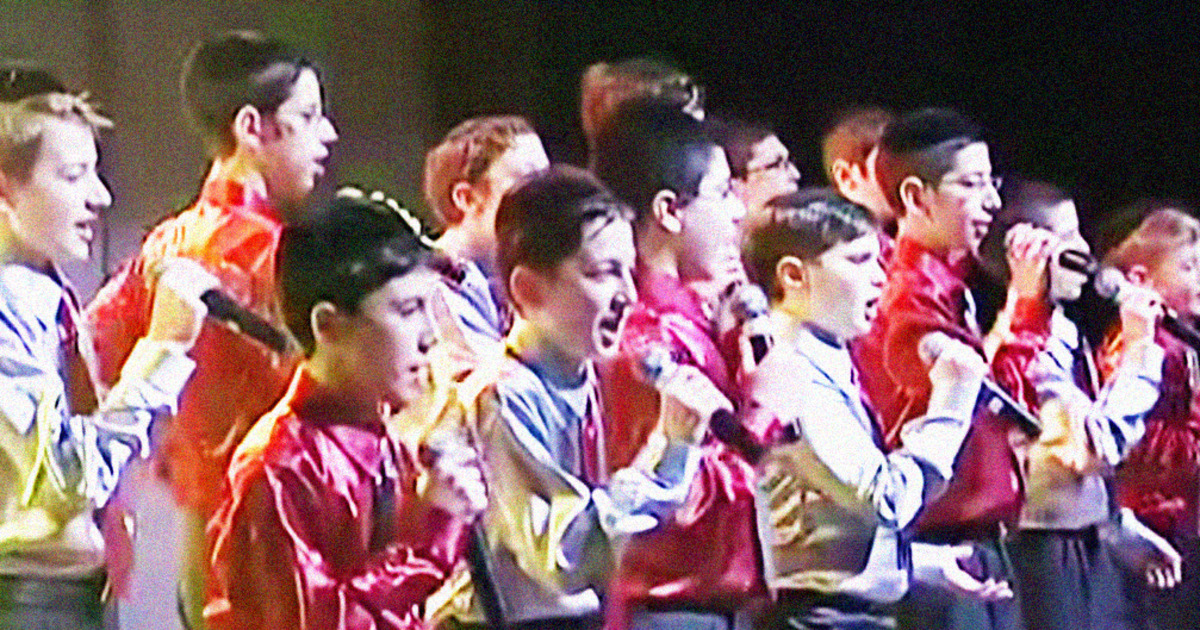
TikTok’s latest musical craze has nothing to do with pop stars or Top 40 hits. Instead, users are obsessing over a 2007 recording of a choir of Jewish tween boys singing an Orthodox pop song in Hebrew.
The now-adult members of the Miami Boys Choir said they’re still trying to wrap their heads around their new viral fame.

The 15-year-old performance of the song “Yerushalayim” (which translates to “Jerusalem”) had been viewed on the platform more than 7 million times.
The clip highlights four soloists — David Herskowitz, Binyamin Abramowitz, Yoshi Bender and Akiva Abramowitz — who have quickly become sensations in their own rights on the platform.
“No idea what they’re saying but David killed that,” a person wrote in the video’s comment section.
“[I don’t care] what anyone says, Yoshi sets the tone,” another wrote.
Another simply commented, “Kpop (Kosher pop).”
The newfound fame has been both hilarious and completely unexpected to the soloists from the original video.
“We never got recognition like this before. It’s fascinating,” Abramowitz said. “The fact that everyone in the world is loving this even though they don’t understand the language … I’m trying to wrap my head around it.”
Abramowitz, 24, and Herskowitz, 27, both joined the choir at around age 9 and left at age 14.
They said they weren’t on TikTok before the viral video took off and instead learned how big it had become from friends and family members who texted them that they were TikTok celebrities.
“I hadn’t seen that video of myself in probably 10 years, so it was really funny seeing it,” Herskowitz said.
The video was posted Aug. 21, but it began to explode in popularity only over the last week. As of Wednesday, more than 6,600 videos had used the audio of “Yerushalayim.”
Herskowitz has since created an account, on which he has posted a few Miami Boys Choir-themed videos. Abramowitz said he created an account but has yet to post anything.
The Miami Boys Choir was founded in 1977 by Yerachmiel Begun in Miami Beach, Florida. It later moved to New York City, although it kept its original name. Dozens of its performances are available on YouTube and the choir’s website. The group also puts out an album every year.
The group holds events around major Jewish holidays and tours both domestically and internationally — although tours paused during the coronavirus pandemic.
Begun’s son, Chananya Begun, started the Miami Boys Choir TikTok account just over two months ago.
“I told him: ‘Dad, we have to get on TikTok. … There’s a chance, nobody knows for sure, but there’s a chance something crazy could happen,'” Chananya Begun recalled telling his father.
He said he believed the choir could become a TikTok sensation because Orthodox pop is “extremely real and genuine and deep … and it’s an extreme pursuit of excellence.”
The original video has become so popular on the platform that some have even bought the full version.
As of now, members of the 2007 choir have no concrete plans to reunite, they said. But some of them, who said they hadn’t been in touch for many years, have formed a group chat and said they’re interested in getting together — possibly to make new music.
Herskowitz put out a song he wrote, produced and sang called “You” on TikTok. Abramowitz, who is in residency to become a gastroenterologist, said he sometimes sings with his brothers but is considering making music a bigger hobby after the overwhelming response to the 2007 video.
“I think maybe I will focus a little more on music and show people, if they really want to see it, what I might have to offer,” Abramowitz said, adding that he is considering uploading music to his newly made TikTok account.
Herskowitz said there was an added beauty in the nostalgic video’s going viral: seeing it be received positively, with very few posting antisemitic remarks.
“There’s so much hate out there and so much negativity and so much difference in the world,” Herskowitz said. “And seeing people unite and love something that is positive and pro-Israel and pro-Judaism, I think that was just so nice, and that really blew me away.”
CORRECTION (Sept. 29, 2022, 12:30 p.m. ET): An earlier version of this article incorrectly translated a song title. “Yerushalayim” means “Jerusalem,” not “Jerusalem of Gold.”






GIPHY App Key not set. Please check settings